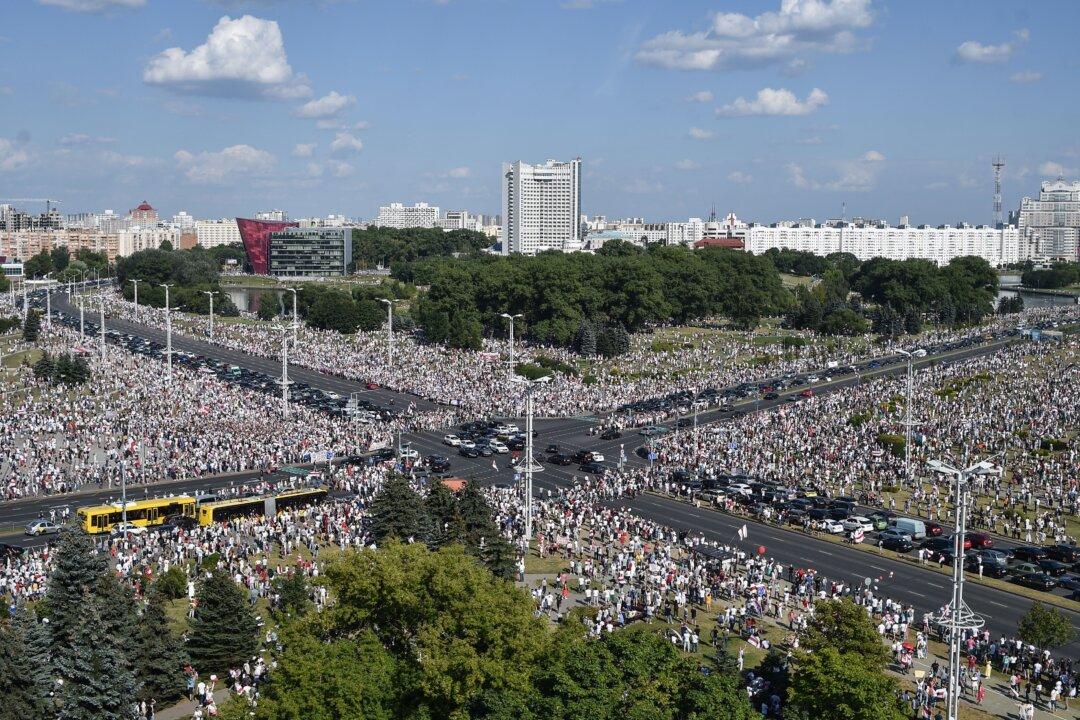Protesters flooded onto the streets of Minsk, the capital city of Belarus, on Aug. 16 in the largest show of opposition to the validity of the results of an election held a week earlier and won by the nation’s authoritarian leader, Alexander Lukashenko, who rejects any possibility of a do-over.
About 200,000 people attended the protest amid a surprising lack of police, who are notorious for violently suppressing dissent in a nation ruled with an iron fist by its first and only president. Thousands of protesters have been detained and two killed since the security forces cracked down on demonstrations following the election on Aug. 9.





